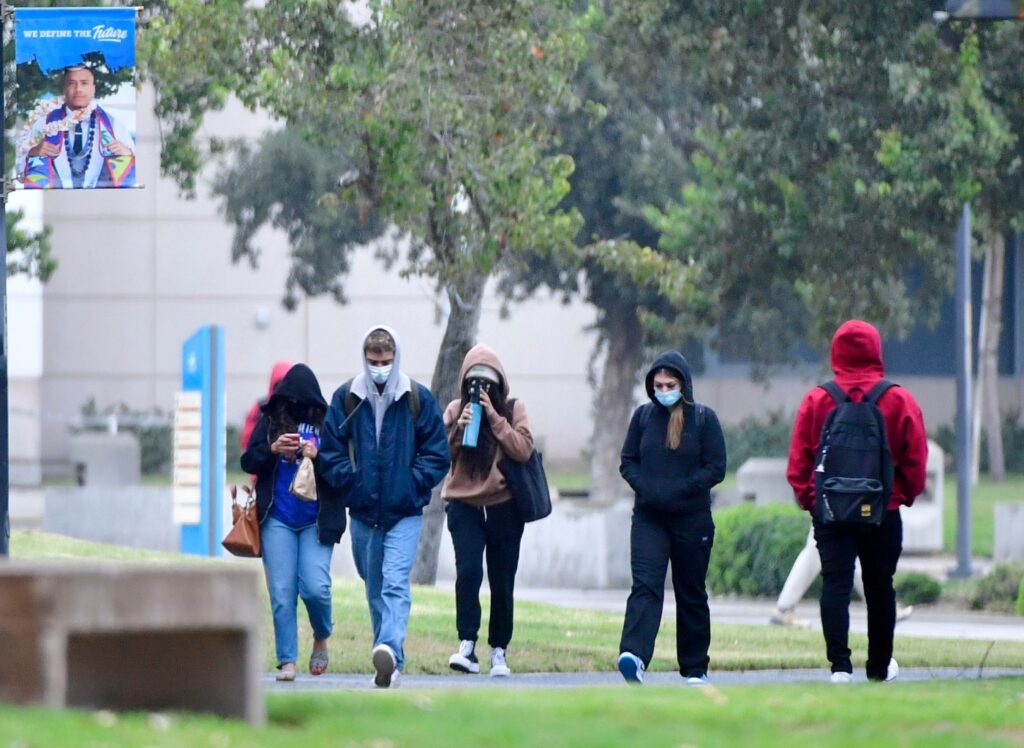
The California State University (CSU) system will stop considering standardized tests in admissions, maintaining that scores underestimate disadvantaged students’ college readiness. However, these same students generally attend worse public schools and lack access to supplemental tutoring; many have consequently not developed academic skills on par with more privileged peers. These preparation gaps have consequences that I witness daily as a CSU physics professor, trying to teach advanced physics when some students still struggle with high school math.
CSU bureaucrats resolutely ignore such inconvenient facts. In 2018, they abolished remedial courses for underprepared students. We might instead address preparation gaps via courses that cover college material more slowly for students whose test scores evidence preparation deficits. However, spreading material over more courses would exceed limits on the number of credit hours required for a bachelor’s degree, limits that our administrators have strictly enforced of late.
Administrators claim they can maintain reasonable admission standards based primarily on high school grades. Not all A’s, however, are created equal, with differences often reflecting a school district’s affluence or lack thereof. Students thus have disparate preparation, and there is only so much that professors can do to compensate. I offer extra help outside of class, but anyone who’s ever interacted with 18 year-olds knows how rarely they recognize their limitations and seek help.
Even the military, empowered to dictate recruits’ study hours, requires high ASVAB scores to train for technically demanding jobs like nuclear reactor operator. I have no such authority over students, and far less funding, yet the CSU expects me to mold into physicists every high school graduate declaring such an interest. Can I at least mandate push-ups when students miss homework?
Much opposition to standardized tests comes from liberal-minded people who often exclaim “Why can’t we be more like Europe?” regarding social policy. Yet European universities place heavy weight on standardized tests. The irony befits an Alanis Morissette song.
By all means, maintain American distinctiveness. Consider grades, recommendation letters, portfolios, and other factors alongside test scores. But do not completely ignore tests. If a talented student scores low because she overthinks multiple-choice tests, then a portfolio of projects and papers will demonstrate her potential. And someone who simply had a bad day when taking the SAT will fare better the second time. But if a student repeatedly bombs tests and has little else to show, let us divert them to either vocational training or additional preparation before attempting college.
Related Articles
Legislature faces difficult politics of plenty
2022 brings slew of new state laws
Housing battle heats up in signature season
Why the delay on critical water storage projects?
California redistricting won’t change Democrats’ control
Critics of tests inevitably point to affluent students who unfairly enjoy expensive test-prep courses, but test prep can only be decisive if you believe that a few months of after-school lessons matter more than twelve years of reading, writing, and math preparation. If only that were true! Even the fanciest test prep is cheaper than twelve years of private school tuition or a mortgage in a posh school district. I would love to live in a world where inequity were so cheaply remedied. Test prep doesn’t hurt, but it’s a distraction from the real issues.
As long as the CSU chooses to ignore the important messages relayed by test scores, and further refuses to consider extra coursework for underprepared students, we will have only two options: accept that ill-prepared students will flounder and fail, or downgrade the level of the coursework until even the least-prepared can pass. Both approaches are unfair to students, poor uses of public resources, and ultimately harmful to a state economy that needs skilled workers. Let us confront the plain truths told by these tests: Too many students need more and better preparation before attempting college.
Alex Small is a professor of physics at California State Polytechnic University, Pomona and a Writing Fellow at Heterodox Academy. The opinions here are his own.
